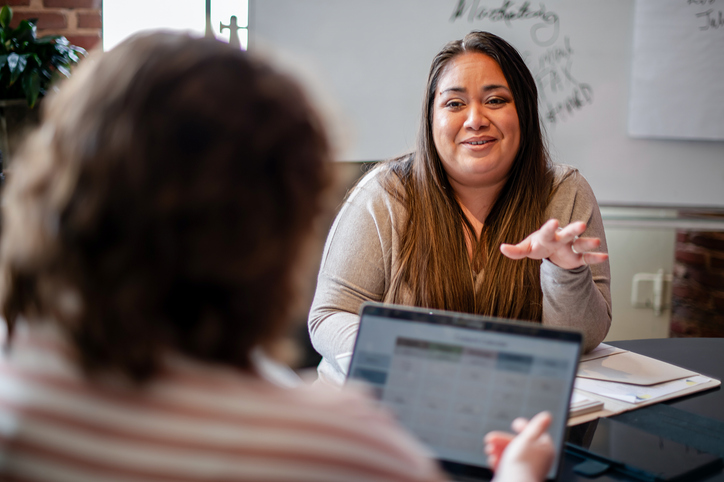Zero-Rating Educational Content on the Internet


are we creating two separate tracks?
which one points the way forward, which way backward?
and: what should it cost to ride?
Over the past dozen years or so, I have seen and/or heard dozens (probably hundreds) of education project proposals that have sought in some way to include the use of text messages. Whether to send reminders to teachers about what they are meant to teach on a given topic, provide students with a 'learning fact of the day', disseminate exam results, inform parents of student absences, or make available simple SMS quizzes for language learners, many of these proposals have shared a common approach to financing one type of related expense.
"We'll ask the mobile phone company to give us lots of text messages for free. Since we are an education project, we are sure that they will do this." ("By the way," some of these project proponents subsequently asked me, "do you know anyone at the mobile provider we can talk to make this happen?")
Only in very rare cases does this approach to funding seem to work, however. When I explain this to people, noting that phone companies typically don't give away airtime for free and then ask, 'what makes you think they will do so for text messages?', most folks tend to explore a wider variety of potential financing options. (A few clever people will note that text messages don't really costmobile providersanything to send; this may be true, but it doesn't change the fact that just because something costs very little, or even nothing at all, doesn't mean that someone is willing to give it away for free.) Most providers (and many third-parties) offer bulk ('high volume') SMS rates that can dramatically lessen the costs incurred when sending out thousands of emails, but in my experience those costs are very rarely waived entirely by mobile providers as part of their corporate social responsibility efforts. (You can always try, though!)
Whether it is the sender or the mobile provider that ends up covering the cost of sending a text message, pretty much all of the education-related project proposals insist that the cost to the beneficiary (a teacher, a student, a parent) should be *zero*.
The cost of receiving text messages in many countries is already zero, of course, and sending SMS is typically quite cheap as well. When it comes to Internet access, however, standard data rates and packages in most of the world can be quite expensive -- prohibitively so for people with low incomes. Paying so that you can receive information via text message on your mobile phone is one thing -- paying to access the Internet using your phone (or other device), can be another matter entirely.
Recognizing this, for a few years there has been a movement to make certain types of educational content available for use by people on mobile networks without incurring any costs related to data transfer. When it comes to education, the Wikipedia Foundation famously pioneered this sort of thing by offering a way for people to receive information from Wikipedia via a free text message. Free text messages: Sounds great, you might say, but there's something that would be even better: free access to educational content directly on the Internet itself – even where such content is already available for ‘free’ on the Internet, users often have to pay their mobile or Internet provider in order to be able to download the content!
Tools and ideas to transform education. Sign up below.
Networked devices of various sorts (phones, tablets) are increasingly cheap, and powerful, and in the hands of more and more teachers and students. Improvements in connectivity however -- more bandwidth, greater reliability, lower costs -- are not happening anywhere near as quickly. Wouldn't it be great if people could use these devices to get access to the wealth of educational resources on the Internet (many of which are provided for free) and not have to pay for the bandwidth that would enable this?
As it turns out, this has actually been happening in some places around the world, a development that has been greeted by different people in different ways -- with delight, with debate, and, in some quarters: with disdain.
Not many educational policymakers have entered into related debates, however, perhaps because they are scared away by some of the language and technical focus that characterize discussions around so-called ‘net neutrality’ issues. In fact, in my experience, few education policymakers are even aware of such discussions, nor of why they should care about so-called 'zero-rating', and its potential relevance to, and application in, education.
---
Following on the successful trial of an initial effort in Kenya a few years ago which offered access to resources on Wikipedia via SMS, Wikipedia Zero, as the service is now known, has morphed and grown. Available in 64 countries through agreements with 82 mobile operators, Wikipedia Zero essentially works as follows:
The operator "zero-rates" access to Wikimedia sites in their billing system, so their subscribers will not incur data charges while accessing Wikipedia and the sister projects on the mobile web or apps. Wikimedia recognizes the user is on that operator's network and serves a banner on the top of the page indicating free data courtesy of their mobile operator, which reinforces a positive brand experience for the operator. When the user leaves the Wikimedia sites, they see a warning message and are asked to confirm, so there is no confusion or risk of surprise charges.
More famous and expansive than Wikipedia Zero has been Facebook Zero, a similar sort of effort by the world's largest social networking platform that began in 2010 and which has been particularly notable across Africa. Building on its success with Facebook Zero, Facebook joined with a number of large technology firms to launch "internet.org", an effort to provide users with free access to Facebook (and a small number of other sites) in a number of developing countries.
This effort was subsequently renamed 'Free Basics' ... and has generated *lots* of controversy. A few weeks ago, the Indian telecom regulator TRAI actually effectively shut it down [pdf] in the world's second most populous country; something similar happened in Egypt at the end of 2015. (Wikipedia Zero has generated some controversy as well, but nothing like what has happened with the Facebook-led effort.)
When talking about these recent developments with number of officials from ministries of education across Africa last month, a few of them expressed surprise that this had occurred. 'Why would government not let people provide something for free?', one of them asked me. 'Isn't this a good thing?'
The answer to this seemingly simple and straightforward question, as it is being formulated and discussed in many countries, is much more complicated than a simple 'yes' or 'no', and relates to a larger discussion around ‘net neutrality’.
---
‘Net neutrality’ is a term used in different ways by different people – and interpreted in still other ways. According to Wikipedia, it is “the principle that Internet service providers and governments should treat all data on the Internet the same, not discriminating or charging differentially by user, content, site, platform, application, type of attached equipment, or mode of communication.”
Zero-rating (which is sometimes referred to as ‘toll free data’ or ‘sponsored data’) is seen as a violation of net neutrality principles, in that customers are charged to access certain types of data and not others.
Tim Wu, the academic who coined the term net neutrality, has asked rhetorically about why we should care if the Internet “favor[s] one application (say, the world wide web), over others (say, email)? Who cares if the Internet is better for some things than others?”
One short answer to the question Wu poses that some people offer is that, once you start discriminating between different types of data on the Internet, new questions arise: Who benefits?Where do you stop? And: Who makes related decisions? Some people contend in response that net neutrality strictures unduly constrain the potential for innovation and the emergence of innovative business models – and end up denying access for people to resources and services on the Internet who are not well served by more ‘traditional’ business models.
OK, folks say lots more than this, of course, when they answer Wu’s question (and they often respond with other questions of their own). Issues around 'equity' are front and center here -- but perspectives on what 'equity' means can vary, depending on who you talk to. (One rather acid comment on the net neutrality debates in a number of poor countries is that they are being led by people who already have access to the Internet, talking about whether or not people who don't have it should get it, and on what terms.)
My point here is not to sketch out, or argue for or against any of the sides of, the net neutrality discussion (nor to preferentially regard or omit mention of any particular perspective – I’m trying my best to be neutral here!). Rather, it is offered to alert some of the folks who regularly read the EduTech blog to the fact that such debates are occurring, and that they just might be relevant to some of the things that they are thinking about doing in the not-too-distant future.
Those who would like to take their first tepid steps into the weeds of such debates might want to check out a short primer prepared by the Educause Review. You can find discussion of net neutrality in the World Bank’s World Development Report 2016: Digital Dividends. The Indian Express and eWeek have put together decent quick overviews of the related debates about zero-rating and net neutrality in India. If you are interested in more adversarial opinions, here’s what Mark Zuckerberg had to say in an op-ed in the Times of India at the end of December during a period of public comment on related draft TRAI proposals, as well as a ‘counterview’ from Nikhil Pahwa in response. Steven Sinofsky and Steve Song have provided some additional useful food for thought. (There are no shortages of places to find opinions or facts – especially opinions! – related to net neutrality on the Internet if you hunt around a little, and not only from fellows named ‘Steve’.)
OK, OK, you might say, I understand that this is more complicated than it might first appear. But: How does this relate to education, exactly?
Basically, here’s one way it is relevant right now:
- As a follow on to large scale efforts to introduce computers and connectivity in schools, many ministries of education are engaged in efforts to make available lots of educational content online in digital formats for use in these schools, and for learning more broadly. (One could argue that they should have been thinking about issues related to accessing digital content before they purchased all of this equipment in the first place, but as a practical matter this regrettably isn’t often the case.)
- In some places, ministries of education and their partners are recognizing that there is already a lot of educational content available for free as so-called ‘open educational resources’, and they would like to promote the use of such content.
- Even where digital learning content exists, however, governments are discovering that, even as the cost of devices fall and more devices are to be found in the hands of teachers and students -- whether government buys them, they are provided by civil society, or are purchased by users themselves -- there are still serious impediments to getting people to use these devices to access educational content online. This is especially true outside of school environments, where connectivity is being (slowly, fitfully, perhaps inadequately) rolled out, but it applies to in-school use as well.
- There are many understandable reasons for these impediments: the poor state of connectivity in general in many places (especially in rural schools and rural communities); insufficient related teacher training; lack of alignment of content to assessment activities; the difficulties in ‘teaching old dogs new tricks’, etc. But: Even where connections are technically possible and bandwidth is sufficient to be able to download this content, and digital learning content is good and relevant, even very small costs related to data transfer may be enough to make such content effectively inaccessible to the vast majority of learners.
Is there something that can be done to lower these costs?, some policymakers are asking.
- ‘Zero-rating educational content’ is one way this is potentially possible. In some cases, governments are considering providing incentives of various sorts for Internet providers to do this sort of thing – or removing related disincentives. (In some extreme cases, they could even compel them to do so: The volume and nature of debates around ‘net neutrality’ and ‘openness’ on the Internet often correlate with existing approaches to governance in a country and the openness of societies more generally, I find, for better and/or for worse.) It can be possible that monies sitting in so-called ‘universal service funds’ could be used to subsidize such practices.
- In other cases, companies are already doing this themselves, whether as a way to differentiate themselves in competitive local markets or as part of their corporate social responsibility’ efforts (or some combination of the two). Econet Zero, for example, offers free access to education content on dozens of web sites for all Econet broadband users in Zimbabwe. (Microsoft Math is also zero-rated by some providers in East and Southern Africa.)
My point here is not to argue for or against such practices or options. Rather, it is to note that these sorts of things are already being explored in some countries, and my strong hunch is that related discussions will happen soon in many more places. No matter how these discussions are initiated and evolve over time, they will most likely be informed as much by politics as they are by economic and technological factors. As my economist colleagues at the World Bank are never hesitant to remind me, however, there is no such thing as a free lunch. All decisions carry with them ‘opportunity costs’, or trade-offs – even if those making related decisions might be unaware of what these might be at the time these decisions are made. Education policymakers might do well to participate in related discussions – and to educate themselves on some of the related larger debates, so that they go into them as well informed as possible.
[h /t to Teresa Mbagaya and Phil Oduorfor the zero-rating examples in Africa]
Note: The image used at top of this blog post ("are we creating two separate tracks? which one points the way forward, which way backward? and what should it cost to ride?") is of the Uguisudani railway station in Tokyo. It comes from the Wikipedian Nesnad via Wikimedia Commons and is used accroding to the terms of its Creative Commons Attribution 3.0 Unported license.
cross posted at blogs.worldbank.org/edutech
Michael Trucano is the World Bank's Senior Education & Technology Policy Specialist and Global Lead for Innovation in Education, serving as the organization's focal point on issues at the intersection of technology use and education in middle- and low-income countries and emerging markets around the world. Read more at blogs.worldbank.org/edutech.
